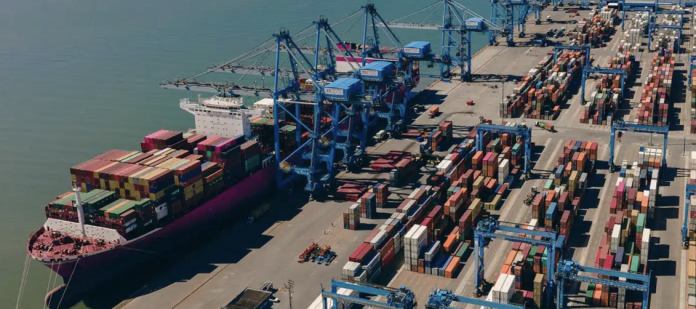Wilson Sons Rio Grande container terminal recorded a 44% increase in July container volumes compared to the same month last year, handling 49,100 TEUs.
Exports increased by 83%, thanks to more ship calls and higher amounts of tobacco, resins, and other items. Additionally, imports climbed 38% thanks to better ship schedule reliability and larger amounts of chemicals and resins.
By overcoming the 2022 bottlenecks in global shipping operations created by Covid-19, exporters are now enjoying cheaper freight costs and more consistent services, resulting in increased volumes, said Wilson Sons in a statement, pointing out that agriculture growth in Brazil benefits infrastructure such as the Rio Grande container terminal.
Moreover, transshipment and shifting increased by 38% in July at the Rio Grande container
terminal, especially due to an increase in cargo transshipment to and from the
US East Coast and South America West Coast. At the same time, inland navigation rose by 32%, with larger volumes of resins.
“The growth in our operations is largely driven by the increase in exports, imports and inland navigation. One of the main reasons is the significant recovery of the Rio Grande do Sul cargo market share. The gradual recovery of ship call reliability also led to a decline in cancellations and lighter traffic in foreign ports. In July, cancellations fell by 82% and, in the year, by 76%. Additionally, we have higher empty container repositioning levels, which allows us to containerize tobacco, wood, rice, and other goods,” stated Rodrigo Velho, commercial director at the Rio Grande container terminal.
“As the number of ship calls increases, so will the number of transshipments. There have been 57 more ship calls this year than in the same period in 2022. The new shipping line to Northern Europe also contributed to this success, resulting in increased capacity and faster transit times at Rio Grande do Sul,” he added.







